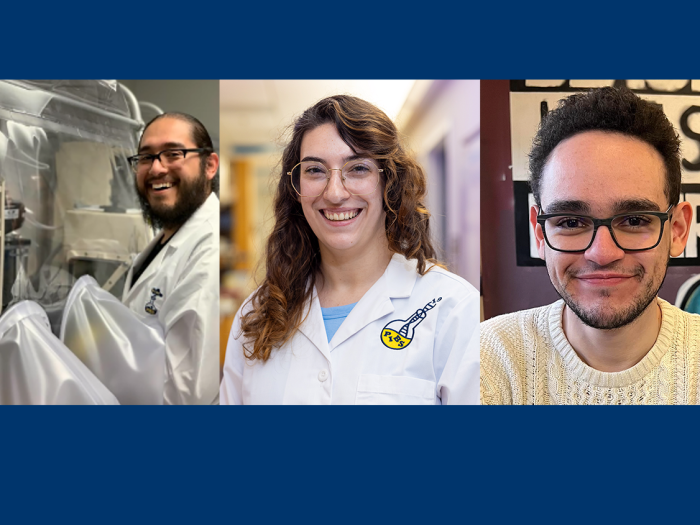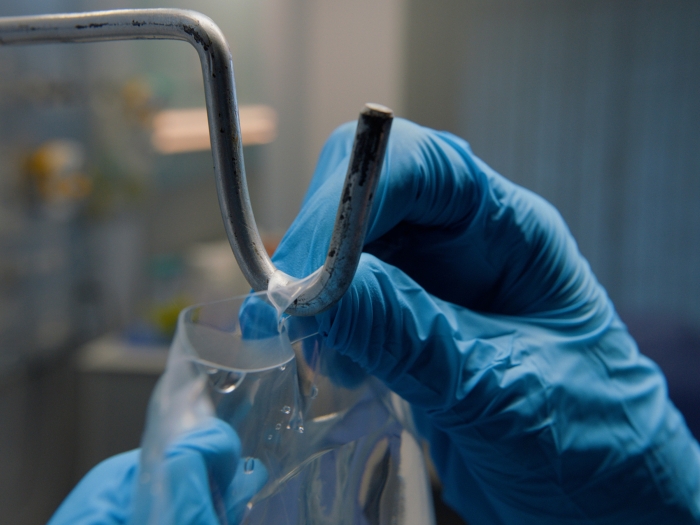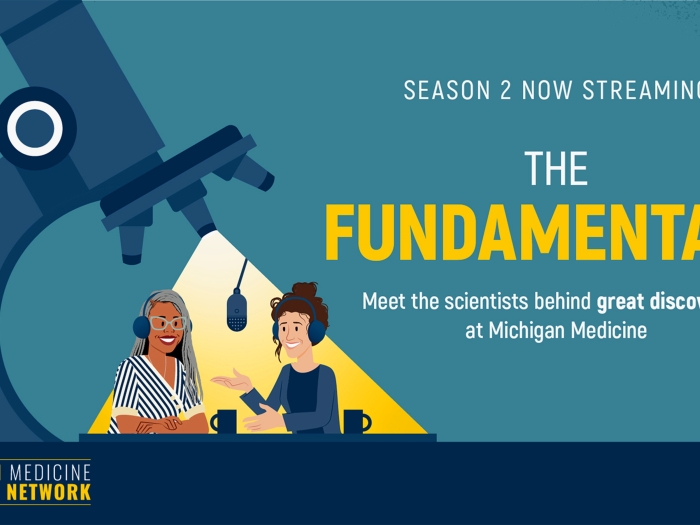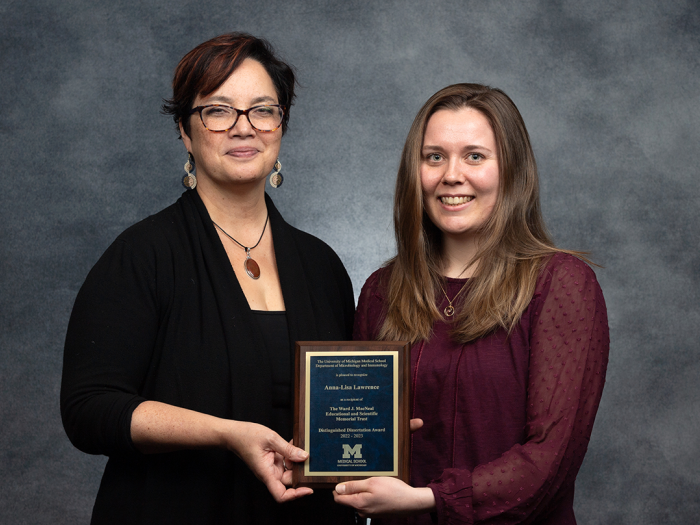Showing 1-15 of 169 results

Health Lab
A large grant for Michigan Medicine will launch important research to improve the screening and treatment for a gynecologic disorder that disproportionately impacts Black and Hispanic populations

Health Lab
On YouTube, the content recommended to kids isn’t always age appropriate, a Michigan Medicine study finds.

Health Lab
Youth with heart disease enrolled in unique program that teaches resilience and builds connections with their peers

Department News
M&I Teresa O'Meara is a recipient of of the Investigators in the Pathogenesis of Infectious Disease (PATH) program of the Burroughs Wellcome Fund. Her lab will further study the mechanisms of attachment and virulence for C. auris, with a focus on how the novel adhesin contributes to pathogenesis. On a practical level, their work will suggest strategies for developing vaccine candidates and therapeutics to limit disease caused by this emerging pathogen.

Health Lab
A quarter of parents report that caffeine is basically part of their teen’s daily life, according to a national poll.

Department News
On May 16, 2024, the Regents of the University of Michigan promoted Melanie Pearson, Ph.D., to Associate Professor on the Research Track, effective September 1, 2024.

Department News
Faith Anderson, Jaime Fuentes, and Andrés Rivera Ruiz, M&I Ph.D. candidates, have been awarded prestigious fellowships from Rackham Graduate School, in recognition of their academic excellence. Congratulations, we’re so proud of you!

Health Lab
In emergency rooms and intensive care units across the country, clinicians make split-second decisions about which antibiotics to give a patient when a life threatening infection is suspected. Now, a study reveals that these decisions may have unintended consequences for patient outcomes.

Medical School News
In the second season of The Fundamentals podcast, co-hosts Kelly Malcom and Jordan Goebig talk to several leading experts from the Medical School about their fields and the fundamental questions they are trying to answer — and discover why U-M is such an amazing place for research. Six new episodes of the popular podcast were released on May 6

Health Lab
A study builds on previous work that found depriving T cells of iron prevented cells from proliferating. The current study, published in PNAS, found that excess iron is just as problematic.

The Fundamentals
Today on The Fundamentals is Dr. Maria Castro, the R.C. Schneider collegiate professor of neurosurgery, and a professor of cell and developmental biology at the University of Michigan Medical School. Her research program aims to develop immunotherapies for primary and metastatic brain cancer, studying basic immune biology mechanisms leading to clinical implementation. She has been inducted into the American Association for the Advancement of Sciences, the Latin American Academy of Sciences, and the American Institute for Medical and Biological Engineering College of Fellows. She has won numerous awards for her contributions to basic science and cancer research and is a diversity ambassador for the Cancer Biology Graduate Training Program.
You can learn more about Dr. Castro here, and you can follow her @castro2355_mg, the Rogel Cancer Center @UMRogelCancer, the department of neurosurgery @umichneuro, Michigan Neurscience Institute @UM_MNI and the department of cell and developmental biology @UMCDB on X

Department News
Four Graduate Program in Immunology alumni participated in a panel discussion about their career paths.

Department News
This M&I award recognizes outstanding dissertations.

Health Lab
Buprenorphine prescribing for opioid addiction used to require a special waiver from the federal government, but a new study shows what happened in the first year after that requirement was lifted.

Health Lab
Overuse of antibiotics can lead bacteria to evolve antimicrobial resistance, but Americans are still receiving the drugs for many conditions that they can’t treat.